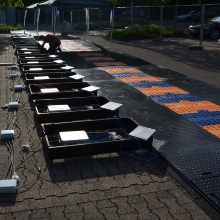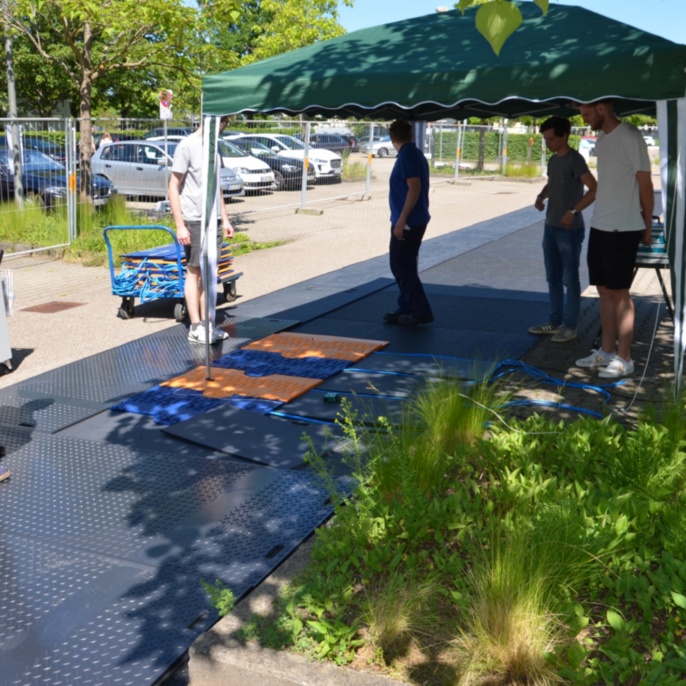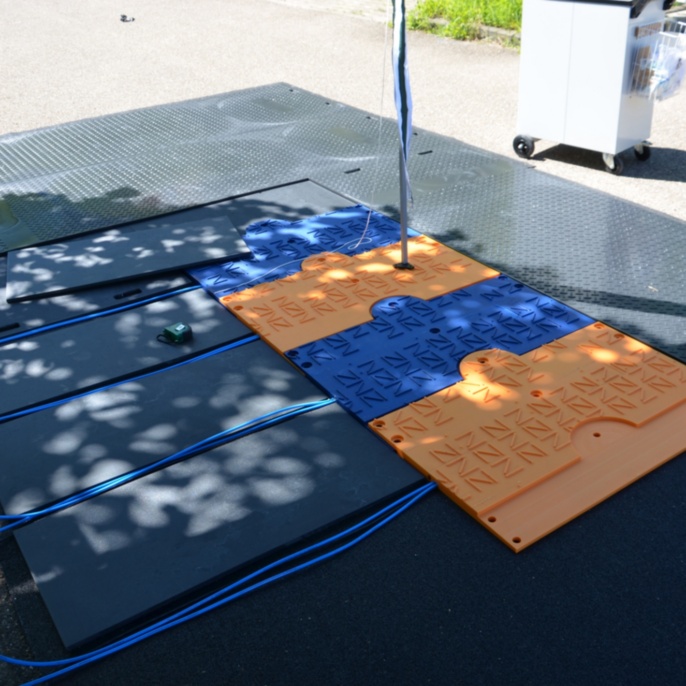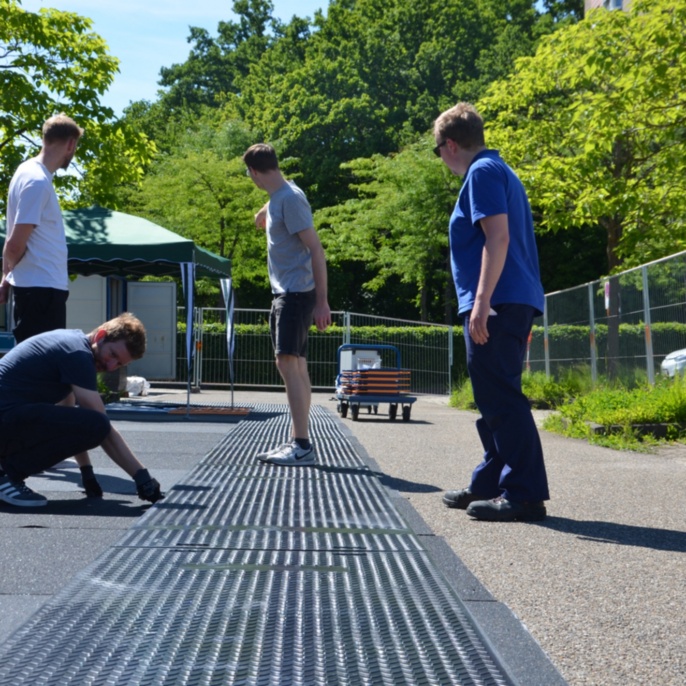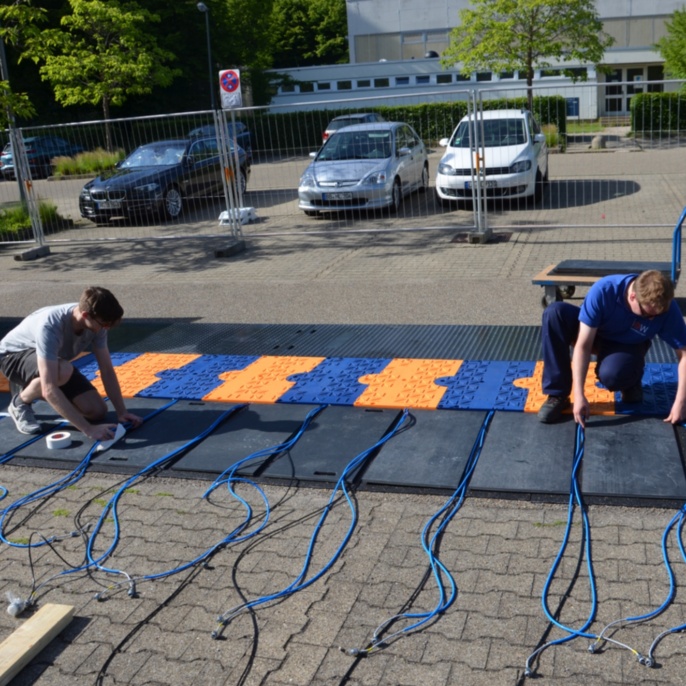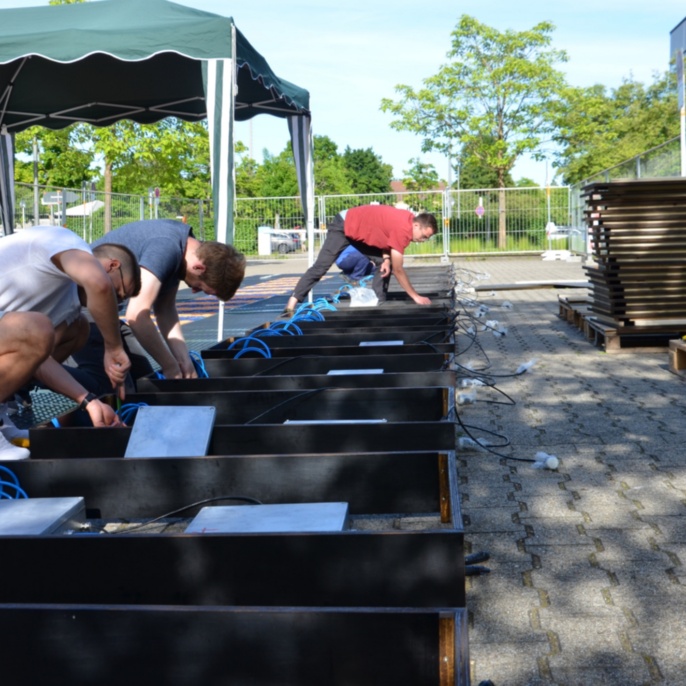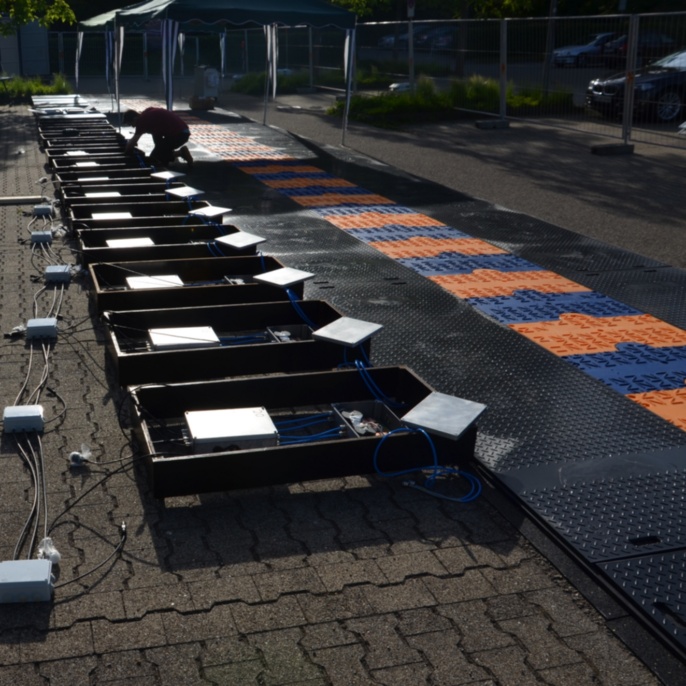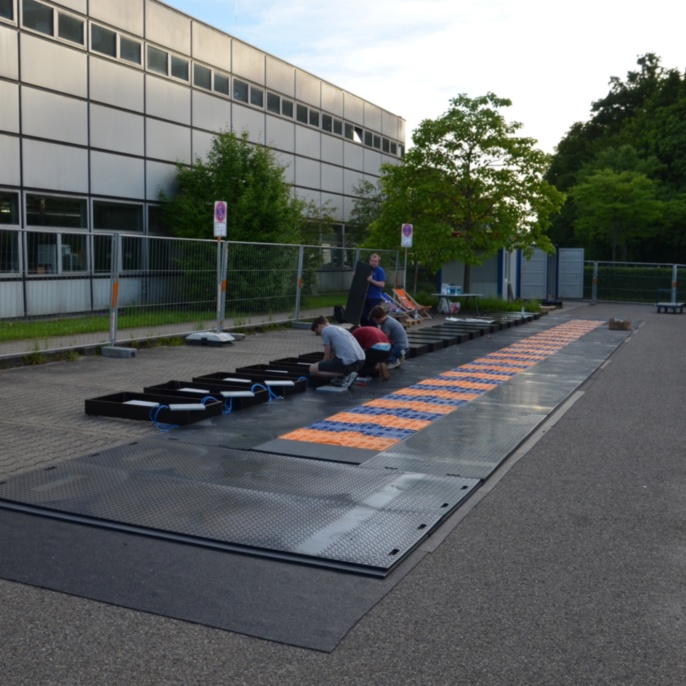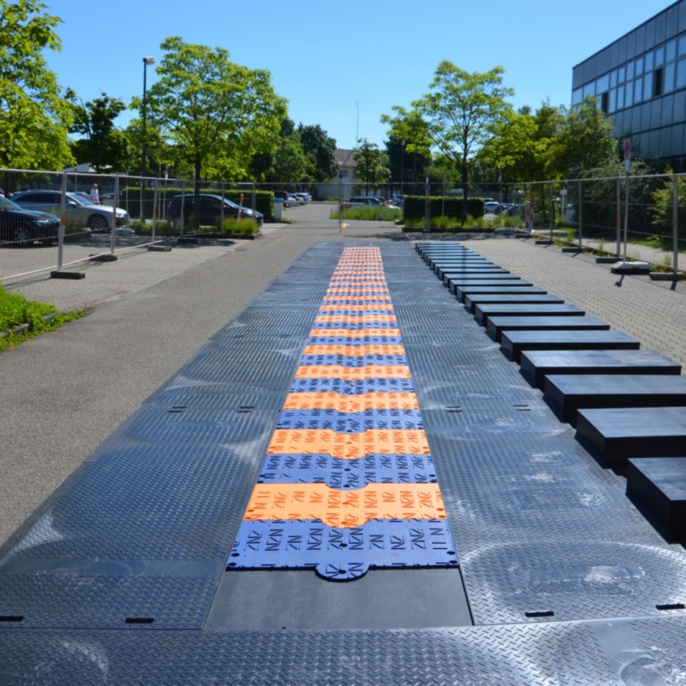Funded by: Ministry of Science, Research and the Arts Baden-Württemberg
Duration: July 2020 - June 2024
The vision of a climate-neutral campus by 2030 is being realized at the University of Stuttgart through the MobiLab (Mobility Living Lab) project. The entire campus will become a research and innovation laboratory. The university campus should be car-free. In the future, access could instead be provided by a parking garage on the edge of the campus. The parking garage and the central S-Bahn station are to be connected to the campus via self-driving shuttles. In addition, a rental system with autonomous e-scooters and RegioRad stations will be implemented.
The Institute for Electrical Energy Conversion (IEW) is currently conducting intensive research on dynamic inductive charging of vehicles as part of the MobiLab subproject "Forschungsstraße: Dynamisches Laden und sichere Energieversorgung". In dynamic charging, the vehicle is charged while driving. This can increase the range, reduce the battery capacity and drastically reduce the necessary charging time. Especially for autonomous vehicles such as the planned shuttle buses on the university campus, inductive charging routes offer significant advantages. This is because these vehicles can be used around the clock without interruptions in charging time. Efficiencies of greater than 92 % are achievable, making losses comparable to conductive charging with cables.
As part of the MobiLab subproject, a 20 m long inductive charging track was developed and built. The track consists of 40 individual coil elements with a footprint of 0.5 m by 0.5 m. The position of the vehicle above the coil system is automatically detected and only the relevant primary coils in the ground are energized at any time. Energy is transferred by magnetic coupling to the secondary coil in the vehicle. The transferred power is proportional to the coil area on the secondary side. For every meter coil length, a power of 20 kW is continuously transferred regardless of the vehicle speed. The effectiveness of the developed setup will be intensively investigated and verified in the coming weeks.
Further information on the overall MobiLab project can be found at the following link

Jannis Noeren, M.Sc.
Research Associate


